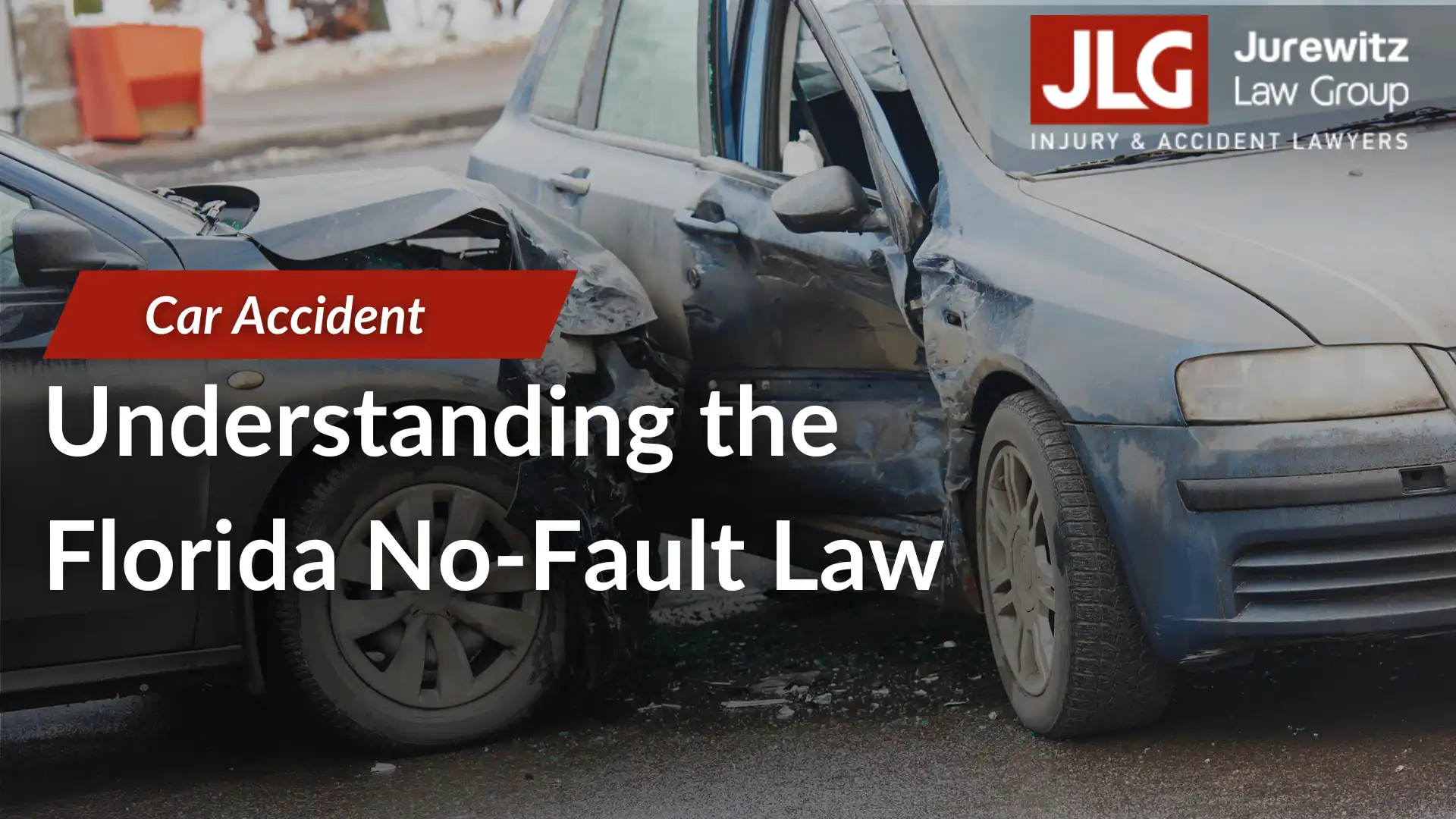
You can’t control others’ behavior on the road. You may be a safe driver, but that doesn’t mean you’ll never get hurt in a wreck. A car wreck could leave you with injuries if a careless driver causes one. This is true regardless of whether you’re a safe and responsible motorist. However, is Florida a no fault state?
Have you been hurt in a Florida auto accident? You may file an insurance claim seeking compensation for medical bills if so. Be aware that Florida’s unique no-fault system will determine how you seek the compensation you’re eligible for.
Is Florida a No-Fault State?
Yes. Florida is one of a few states using the no-fault system for car insurance and car wrecks.
How does the Florida no-fault law affect drivers? First, to register a vehicle with at least four wheels in Florida, you must typically purchase Personal Injury Protection (PIP) insurance.
In most states, when someone else causes a wreck, their insurance is responsible for compensating victims. If you got hurt in a crash in such a state, you would pursue compensation by filing a claim with the insurer of the party who caused your injuries.
No-fault insurance claims in Florida are different. In Florida, you would file a claim with your own insurance to seek injury compensation after a wreck, even if someone else technically caused it.
Florida Auto Insurance Requirements: What You Need to Know
A vehicle with a current Florida registration must meet the following insurance requirements:
- Having both PIP coverage and Property Damage Liability (PDL) coverage (which pays when you cause a wreck resulting in property damage to another person’s vehicle)
- At least $10,000 in PIP coverage
- At least $10,000 in PDL coverage
Drivers in Florida must purchase insurance policies from providers licensed to do business in the Sunshine State. Discuss transferring your current policy to Florida with your agent if you’re moving to Florida from elsewhere in the country.
A vehicle must also continue to have coverage even if it’s no longer in drivable condition. If you’re planning on surrendering the license plate or tag of a vehicle that’s no longer drivable, do so before canceling insurance.
The law also requires you to maintain Florida insurance coverage for the duration of the registration period. Even if your vehicle isn’t in Florida, you should still maintain coverage. The only instances in which this may not be necessary involve members of the military.
What if PIP Coverage Doesn’t Fully Compensate You in Florida?
PIP coverage covers medical expenses of up to 80 percent of “necessary and reasonable medical expenses” after you sustain injuries in a collision. This is true no matter who caused the wreck. PIP offers up to $10,000 in injury coverage.
That might not be enough to compensate you for your losses. Perhaps your injuries are severe and require ongoing medical treatment. Your bills might exceed $10,000 if so. In addition, your injuries may have resulted in other losses, like lost wages.
Although Florida is a no-fault state, there are circumstances in which victims can take legal action against the drivers who caused their wrecks. Florida law allows you to do so in the following situations:
- You’ve sustained major and permanent loss of a key bodily function as a result of your injuries.
- Your injuries are reasonably likely to be permanent.
- You’ve sustained significant and permanent scarring or disfigurement
- A wreck has resulted in a victim’s death, and their family is pursuing compensation accordingly.
Don’t delay if you believe you have grounds to file a separate lawsuit against a party who caused the wreck. You must file a lawsuit within two years of the collision. You’ll waive your right to compensation if you fail to file by the deadline.
How the Comparative Fault System in Florida May Affect Compensation After a Wreck
 The comparative fault system in Florida might affect how much compensation you can receive when filing a third-party claim or lawsuit against another motorist. If your own carelessness played a role in the motor vehicle crash, you may be eligible for less compensation than you could receive if someone else caused it entirely.
The comparative fault system in Florida might affect how much compensation you can receive when filing a third-party claim or lawsuit against another motorist. If your own carelessness played a role in the motor vehicle crash, you may be eligible for less compensation than you could receive if someone else caused it entirely.
Consider the following scenario:
- You stop at a stop sign at a four-way intersection. You proceed through the intersection after coming to a complete stop.
- As you proceed through the intersection, another driver runs a stop sign while speeding. They collide with your vehicle, causing injuries.
It seems clear the other driver is to blame in these circumstances. They caused the wreck while violating two traffic laws.
That said, perhaps footage of the crash or other evidence shows that you were somewhat careless, too, in the moments before the wreck. Maybe you didn’t fully check to see if it was safe to proceed through the intersection when you did. A claims adjuster or defendant could argue you might have avoided the crash had you been more cautious.
Or, maybe you weren’t wearing a seatbelt. Someone in these circumstances could argue that your injuries would have been less severe had you obeyed the law.
Responsibility and percentage of fault
You may be responsible for your injuries to some degree. The extent of your responsibility might be represented by a percentage. That percentage can influence how much compensation you might receive from an at-fault driver or their insurer.
Maybe you would have been eligible to receive a maximum of $20,000 if someone else was solely responsible for causing the wreck. Unfortunately, you have been found to be 20 percent to blame for your injuries. The most compensation you would be eligible to receive would thus be $16,000. If you were more than 50 percent responsible for the crash or your injuries, you wouldn’t be eligible to receive anything.
Contact a Florida Car Accident Lawyer
Is Florida a no fault state? Yes, but when filing a claim with your own insurance, having proper legal assistance can dramatically simplify the process of seeking compensation. A qualified Tampa car accident lawyer at Jurewitz Law Group Injury & Accident Lawyers could also help determine if you have grounds to file a lawsuit. Learn more about your options from our team of lawyers by contacting us online or calling us at (619) 233-5020 for a free case review. Our team has the skills and experience to help you get the best possible outcome.
Related Posts
How a Police Report Can Impact Your Car Accident Claim in Florida


